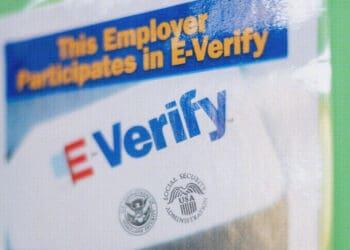Return-to-office calls notwithstanding, many observers expect remote or hybrid work to grow in popularity this year and beyond. Global Tax Network director Tracy Novotny explores the tax and compliance implications corporate leaders need to know for 2024.
The pandemic flipped the corporate world upside down. As a result, remote work and flexible work models have exploded in the past few years. A March 2023 Gartner poll predicted that 39% of all knowledge workers would work hybrid or fully remote by the end of that year.
In 2024, mobility is expected to continue to make its return. One Mercer study found that more than half of companies expect an upswing in workforce mobility this year, and according to the study, 59% of businesses predict an uptick in virtual and short-term assignments, while 56% expect an increase in remote international workers.
However, tax and governance authorities have also advanced, and few corporate leaders realize how exposed to risk their mobility programs are becoming thanks to the increase in remote work and non-traditional work scenarios for their employees. What does 2024 have in store?
Companies will find they’re overloaded with data
Corporate leaders have been collecting data for a while, sometimes without knowing how they’ll use it. In 2024, data overload could drag down companies. According to an Oracle study, 86% of leaders say their decisions are becoming significantly more complicated because of the volume of data that’s piling up.
When it comes to mobility, knowing where your employees are is extremely important, not only from a duty of care perspective but also from a tax compliance perspective. Companies have been collecting more and more data around the location of business travelers and remote workers but are now faced with a data overload and are missing a plan to interpret and action the data accordingly.
There are two significant concerns that spring out of collecting too much data without having a strategy to put that information to use:
- Obscured vision: Too much unused data can overwhelm tax and compliance teams — and obscure their vision. The previously mentioned Oracle study found that 89% of business leaders believe their organization’s success is being limited by the growing volume of data and sources.
- Privacy risk: It’s no secret that authorities such as the European Union (EU) have ramped up data security laws in recent years. What’s less publicized is how corporate leaders are wrestling with these new laws. According to a Womble Bond UK survey, 55% of companies that conduct business in the EU and UK struggled to adjust to changes or extra requirements in new data protection laws.
Simply put, the more data corporations hold onto without a plan, the higher their risk of violating privacy, tax or security laws.
Survey: Workers Now Consider Flexibility Part of Compensation
Flexible location & hours highest-rated non-salary compensation, with bonus a close second
Read moreDetailsAI and automation are in tax authorities’ hands
In the past, companies may have gotten away with more hands-off remote work and business travel policies, allowing employees to work untethered in any location. However, those days are coming to a close. That’s because tax and regulatory authorities are starting to use AI and automation to enforce regulations. Here are a few examples:
- IRS initiatives: Following the passage of the Inflation Reduction Act in 2022, government leaders in the U.S. laid out a strategic operating plan with considerable enhancements. This is a 10-year plan that includes the development of technology, improved data analytics and a focus on enforcement of taxpayers with complex tax filings. Additionally, the plan includes improvements to the ability to receive and use data from foreign jurisdictions to pursue noncompliance issues in the U.S.
- Canada’s data collection efforts: For years, Canada has been collecting an increasing amount of data on migrants and sharing that information with the U.S. As automation and AI ramp up, authorities can use that data to crack down on taxes for business travelers and remote workers. And Canada’s tax laws may be stricter than most business leaders realize. For instance, under Canadian tax law, a U.S. employee who wants to work in Canada may need to report wages and income tax after a single day of business travel or remote work in the country. There may be ways to reduce those reporting obligations, but planning is required, including completion of corporate registration and applications approved by the Canada Revenue Agency.
- India’s technology upgrades: India is now using AI and machine learning to nab tax violators. According to a recent report, India is creating AI models to identify tax filing errors or deviations. For corporations with remote workers or business travelers, that could mean they’re increasingly on the hook for tax due in India.
Modern remote work tax laws are surfacing
Tax laws are slowly catching up to the realities of new work models. Although tax laws alleviating some of the complexities for employees temporarily working outside of their country of residence have existed for years, how the laws were written does not seamlessly address the new work models.
For example, remote workers spending time outside their country of employment and tax residence may be subject to Social Security tax in the remote work location. Social Security totalization agreements exist between many countries, but the agreements do not fully address remote work scenarios. This may cause a loss of contributions in the origin location and may cause contribution requirements in the remote work location for both the company and the employee.
The social tax requirements from country to country can vary. However, many countries, such as EU-member states, have taken steps to ease the burdensome requirements for remote workers and standardize obligations.
Employees also risk facing double taxation if they’re traveling to and working from multiple U.S. states. For instance, when one remote tech worker recently split time working between California and Texas, the company’s CEO says his company was asked to pay an unexpected $30,000 in taxes and fees.
Overall, if businesses don’t adopt a proactive tax stance for remote work and business travel, they may face new corporate and employee tax obligations, run the risk of misreporting, or run into audits.
Stay ahead of 2024 trends
If corporate leaders take a business-as-usual approach to the new reality of their mobile workforce, they’ll expose their corporation to a higher risk of tax and compliance violations, fines, possible employment law issues, and reputational damage. There are steps business leaders can take to stay ahead of regulators and protect their businesses in 2024:
- Rethink your data strategy
- Adopt a more proactive approach to reporting obligations
- Communicate tax implications to employees




 Tracy Novotny is director of Global Tax Network (GTN). She has over 15 years of experience in the global mobility tax field providing advisory and compliance assistance for both corporate and individual clients. Her experiences include providing assignment tax planning assistance, global payroll and tax compliance services, international tax policy design and program risk review.
Tracy Novotny is director of Global Tax Network (GTN). She has over 15 years of experience in the global mobility tax field providing advisory and compliance assistance for both corporate and individual clients. Her experiences include providing assignment tax planning assistance, global payroll and tax compliance services, international tax policy design and program risk review. 









